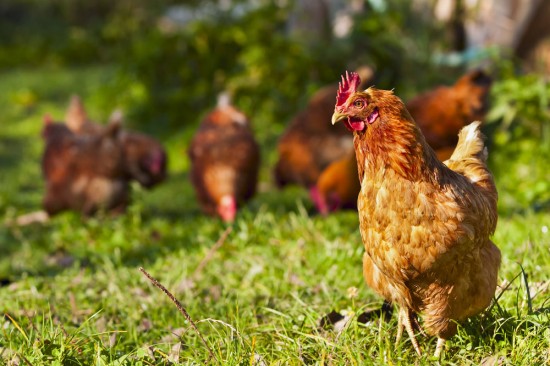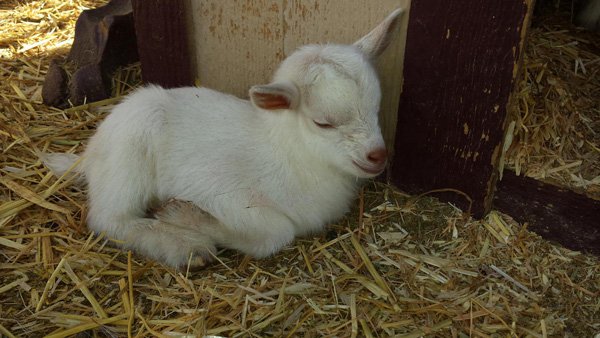

“Poultry” is the catch-all term used to refer to a range of domesticated birds that are commonly kept as pets, or for their eggs, meat or feathers. Many people who have a large garden or some land with their house have considered the idea of possibly keeping a couple of chickens or other birds for their eggs, or simply because they like having them around. But providing for and looking after poultry is not as simple as simply bringing home a pair of hens, turning them loose and expecting them to start laying!
Chickens, turkeys, ducks and geese are the most commonly kept poultry birds in the UK, with ducks and laying hens the most popular overall. All different varieties of poultry have slightly different care requirements, with ducks and geese being waterfowl and so needing access to a pond or other area in which they can swim, as well as their land-based accommodation!
How any particular type of poultry should be cared for and managed will vary from species to species, and it would not be possible to cover all of the information required to keep all types of poultry birds in just one short guide! However, if you are considering keeping poultry, this article should provide you with some information on their care and requirements, plus some advice on how to buy and transport birds home and settle them in.
Check out these species-specific information guides on keeping hens, ducks, turkeys and geese too.
In order to be able to consider keeping poultry, you must have a sufficiently large garden or other area of land to be able to set up their housing and allow them to roam around safely, plus access to water if you wish to keep geese or ducks. You may also need to find out if any planning regulations or local laws apply to keeping poultry as pets or on a small scale for their eggs, and in some areas it is not permitted to keep a cockerel in the suburbs or built up areas! If you plan on keeping fifty or more birds in total you will also need to be licensed for this on DEFRA’s poultry register, and possibly have to put a change of usage planning application in for your property (unless it already has the appropriate permissions in place).
As well as considering any legal ramifications, you should also think carefully about the impact that keeping poultry might have upon your neighbours in terms of noise or inconvenience; plus learn about other relevant factors, such as the fact that poultry food can attract rats, presenting problems of its own. Also, you will of course need to ensure that all of your family are as keen to share their garden with poultry birds as you are!
Consider the following questions as well:
Consider all of these factors and assess how you can answer these questions taking into account the poultry type you wish to keep and your own situation before moving forwards.
Buying poultry birds is relatively inexpensive, with chickens and ducks available from around £15- £20 upwards. Chicks and hatchlings can be bought for even less than this, but offering guidance for the beginner on how to raise chicks would require a whole article of its own, and the first time poultry owner is recommended to start their poultry keeping with juvenile or adult birds.
How much it costs to provide suitable housing, fencing and equipment is very variable, depending on the style of housing you wish to use, if you already have any facilities to hand, how large the accommodation provided is, and many other factors. Housing for poultry can range from home-built wooden hen houses at under £100 for the wood and fittings needed to create it, up to over £1,000 for professionally made or specialist accommodations. You will also need to provide food, bedding and other equipment, although the cost of the ongoing care for poultry tends to be fairly low after the initial outlay, notwithstanding any veterinary treatment required.
You will need to dedicate some time on a daily basis caring for your birds; this included feeding, letting them out of their enclosure in the day, and securing them at night. You will also need to keep their housing clean and check for eggs each day, and make provision to thoroughly clean the housing and equipment at least once a week. That said, poultry are generally considered to be fairly low maintenance to keep on an ongoing basis, and it does not normally take up a great deal of time each day to look after them adequately.
Ducks, geese, chickens and turkeys all have different nutritional requirements, which you should find out about and ensure that you can provide for before taking on any type of birds!
Birds also need to have access to grit, which they eat to aid with digestion, and may require supplemental calcium such as ground up shells. The feeding and nutritional requirements of poultry can vary at different times of the year and depending on the laying cycle, and so a significant amount of research is required beforehand to gain a good understanding of what your potential new poultry birds should be fed throughout the year.
Poultry birds are generally fairly robust, and if correctly fed and cared for, often go through their entire lives without requiring veterinary treatment. Health issues are of course more likely to develop as your birds age, and it is not unusual for poultry birds to suffer from the occasional cold or upset stomach, although the latter is usually caused by overeating bugs and slugs and snails! Poultry birds can also be prone to lice, mites and worms, which is something that you should keep an eye out for and discuss with your vet to prevent and treat.
Healthy birds should have bright beady eyes, smooth legs with the scales laying flat and not flaking or lifting, and no visible injuries or ailments. When poultry birds are moulting, they can look rather forlorn and unkempt, but this is a natural process for birds and not cause for concern, providing that you can establish that it is part of their natural moulting cycle. Their bodies should be plump and firm, but not overly fat, and they should be alert, active and inquisitive. Any discharge from the eyes, beak or back end is a potential indicator of ill health, and for birds with a comb such as chickens and turkeys, this should be firm and healthy-looking.
The most popular poultry birds for the first-time keeper are hens and ducks, and some information on duck health and wellness can be found here, chicken health and wellness here, plus a guide to some common health problems in chickens is available here.
You will need to provide suitable housing and possibly a run for your birds, and this will vary from species to species depending on their exact care requirements. A guide to hen houses and how to set one up can be found here, and establishing exactly what the best form of housing is for the birds you wish to own is something that requires a lot of research and consideration.
However you choose to house and keep your poultry birds, the housing should be raised off the ground to provide protection from predators and damp, and be warm and dry with no leaks or drafts, and suitably secured so as to provide protection from foxes and other predators.
As well as the housing, you will also need to provide, among other things:
One of the most popular reasons for keeping hens, ducks and other poultry is for their eggs! Enjoying an ongoing supply of freshly laid eggs from birds that you have cared for is infinitely more rewarding than buying from the supermarket, and can significantly cut the cost of your shopping bills over time! Ducks and of course, hens are the most commonly kept laying birds, and some more information on the best types of hens to keep for eggs can be found here. Different breeds of hens produce different types of eggs, and a thorough guide to egg colours and types can be found here.
Well cared for birds of laying age will generally produce eggs reliably, and you may even find yourself with more eggs than you and your family can eat on your own! Hens, ducks and other birds can be fairly adept at hiding their eggs, both in their housing and on any land that they have access to, so you may find that every day becomes something of an egg hunt, and this is not just restricted to Easter!
Poultry are not available to buy in your average pet shop for obvious reasons, but they are relatively easy to buy nevertheless. Farms, other poultry keepers and both private and commercial sellers often sell poultry for small scale owners to keep in their gardens, and you can even get your birds by re-homing ex battery hens too. Check out this article on looking after battery hens, or browse the poultry for sale and poultry for adoption sections for birds offered by third party sellers here on Pets4Homes.
When buying your new birds, it is important to check them over as part of the sale process, and ensure that they are in good health and fit and well. Buying birds that are already established layers is a good idea to give yourself the best chance of getting eggs from your birds within a relatively short period of time, and you may find that birds that are known to be good layers will be slightly more costly to buy than younger birds or those that are less prolific!
Talk to the seller of your birds in depth to find out about their history, health, routine and care requirements, and find out if the seller will be willing to offer you advice and assistance if needed after the sale. Check if the seller will be willing to take the birds back if they are found to be unhealthy or otherwise not as described shortly after the sale too. As with making any purchase, always get a receipt for any money that changes hands with your seller.
There are various different ways to transport your new poultry birds home, and how you manage it will depend greatly on how many birds you are buying and how large they are!
 Testing A Puppy’s Aptitude And Intelligence
Testing A Puppy’s Aptitude And Intelligence
 Why you should bring your pet dog to a dog daycare Toronto at least once?
Why you should bring your pet dog to a dog daycare Toronto at least once?
 Some More Information About The Samoyed Dog Breed
Some More Information About The Samoyed Dog Breed
 Some Important And Yet Commonly Overlooked Aspects Of Small Dog Care
Some Important And Yet Commonly Overlooked Aspects Of Small Dog Care
 Canine Hydrotherapy At Home
Canine Hydrotherapy At Home
 How to turn dog walking into a successful business?
How to turn dog walking into a successful business?
 Adopt A Cat And Get A Gift
On 9 June, I read on Google news a very unusual announc
Adopt A Cat And Get A Gift
On 9 June, I read on Google news a very unusual announc
 Does Nutrition Play A Role In Treating Kidney Disease In Dogs
Does Nutrition Pl
Does Nutrition Play A Role In Treating Kidney Disease In Dogs
Does Nutrition Pl
 Things You Need to Understand Before Buying Pet's Stuff
Things You Need to Understand Before Buying Pet's Stu
Things You Need to Understand Before Buying Pet's Stuff
Things You Need to Understand Before Buying Pet's Stu
 Osteoarthritis In Dogs And Cats
Osteoarthritis In
Osteoarthritis In Dogs And Cats
Osteoarthritis In
 Chicken Runs: Here's a Shortlist of What to Expect When Buying
Chicken Runs: Here's a Shortlist of What to Expect Wh
Chicken Runs: Here's a Shortlist of What to Expect When Buying
Chicken Runs: Here's a Shortlist of What to Expect Wh
Copyright © 2005-2016 Pet Information All Rights Reserved
Contact us: www162date@outlook.com